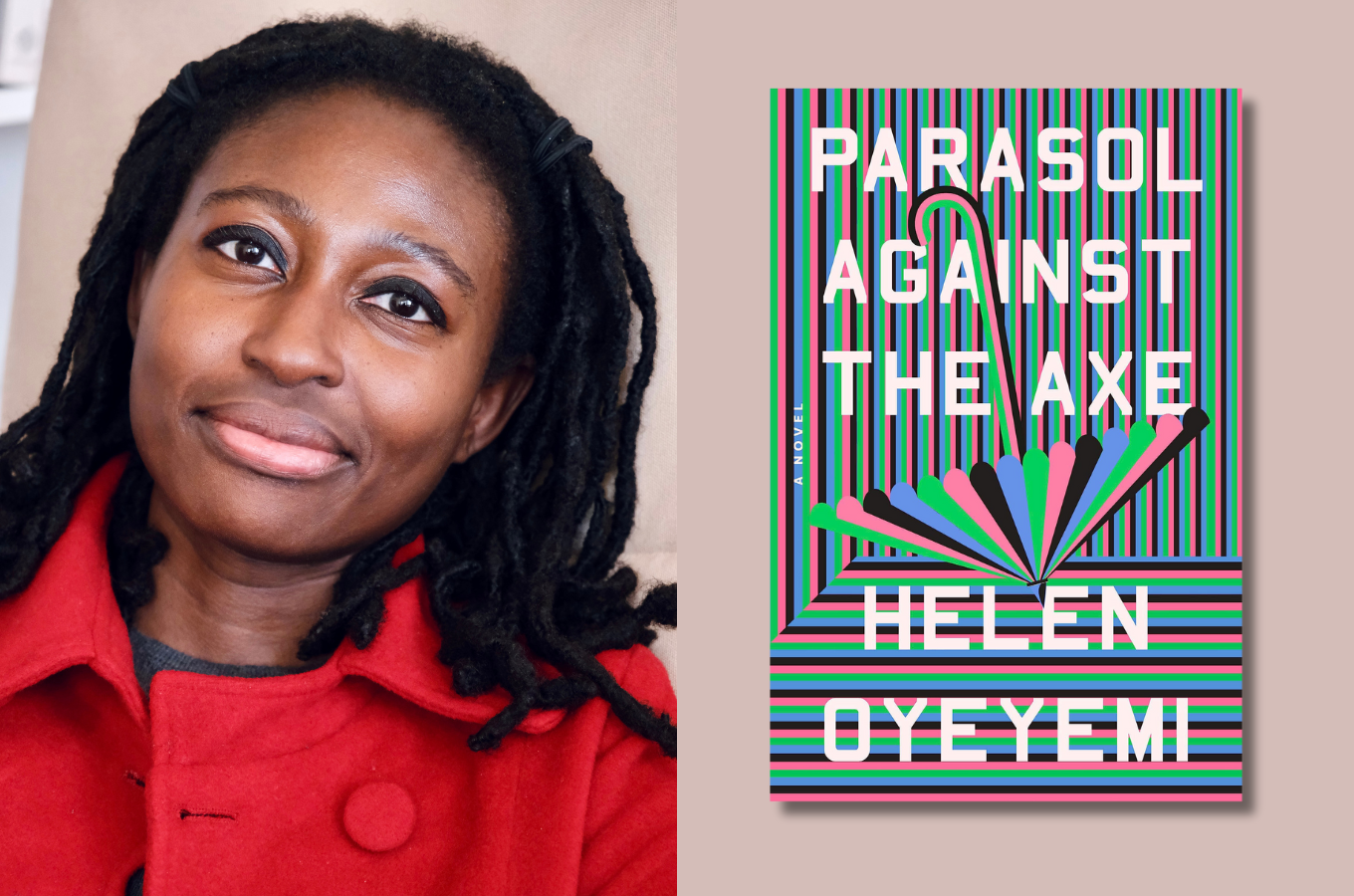
Nigerian-British author Helen Oyeyemi’s latest New Yorker Magazine interview reveals her perspectives on the city of Prague and place writing. She bases these observations on her recent novel Parasol Against the Axe set in Prague and released by Riverhead Books on March 5.
Oyeyemi’s latest novel is about storytelling in the city of Prague. Hero Tojosoa is in Prague on a bachelorette weekend hosted by her estranged friend Sofie. But the city has a penchant for playing tricks on the unsuspecting. Hero has brought a book with her “Paradoxical Undressing” which seems to be warping her mind: the text changes depending on when it’s being read and who’s doing the reading, revealing stories of fictional Praguers past and present.
According to the synopsis, Parasol Against the Axe considers the “lines between illusion and delusion, fact and interpretation, and weighs the risks of attaching too firmly to the stories of a place, or a person, or a shared history.”
Place and the slipperiness of place is key to Oyeyemi’s work. In the interview, Oyeyemi remarks that she lived in Prague in 2009, and liked it so much that she felt delusional. So she “dated other cities,” deciding to come back for good in 2013.
Although Oyeyemi’s new novel is set in Prague, there seems to be tension in the story about place and place writing according to Jennifer Wilson, Oyeyemi’s interviewer for the New Yorker article. Oyeyemi remarks that she is indeed uneasy about attaching stories to fixed places:
Once you start trying to nail down a place is when it begins to elude you. That’s especially the case with Prague. It’s hard to know what you’re talking about when you talk about Prague. Which Prague? Which aspect of it do you mean? When people talk about London, too, I don’t know which London they’re talking about. I know my very specific South London context, like the streets of Deptford. When I went to school in Holland Park, I would get on the Tube for forty-five minutes, and it felt like I had travelled across the world. It’s tricky to talk about a place. There is always some element of deception involved with trying to represent a place, and I wanted to be upfront about that in the text.
Oyeyemi’s uneasiness about deceiving readers when it comes to representing place in her writing is reflected in the novel as well. When Sofie’s fiancée, Polly, picks Hero up from the airport, she is intent on showing her “the real Prague.” Here, the real Prague is meant to represent the secret spots that only residents of the city would know where to find.
Oyememi argues she does not buy into this idea of the real Prague over the not-real Prague. They are just different versions of the city for different audiences:
Yeah, I think that’s a completely false dichotomy. Real and pretend are the same thing at different times. This is part of what I love about fiction and the reading of fiction. It’s allowed me to discern different types of imaginary. Even when it comes to media and political processes, it’s not a question of what is imaginary and what is not: it’s just a case of whose imagination is at work here. What is being acted on and who is being acted on? Who’s being shaped in this kind of delusory crucible? It’s a constant process that only fiction observes and embraces. That’s why I exaggerate so much in my fiction. Whatever can happen does happen. I’m delighted by letting the story run away with itself in that way.
We love that Oyeyemi sees place writing as a kind of reinvention of the city (of Prague in this case). She highlights “inner emigration”, an artistic movement where artists embrace the idea of inventing and reinventing places when their physical selves are not free to travel in such a manner. She laughs and comments, “My mind has to invent new countries that exist in the name of existing countries.”
Helen Oyeyemi is a British-Nigerian novelist and writer of short stories. Her third novel White Is for Witching (2009) was a 2009 Shirley Jackson Award finalist and won a 2010 Somerset Maugham Award. In 2009, Oyeyemi was recognized as one of the women on Venus Zine’s “25 under 25” list. Oyeyemi’s 2016 story collection What Is Not Yours Is Not Yours won the 2016 PEN Open Book Award.
Read the full New Yorker interview here.









COMMENTS -
Reader Interactions